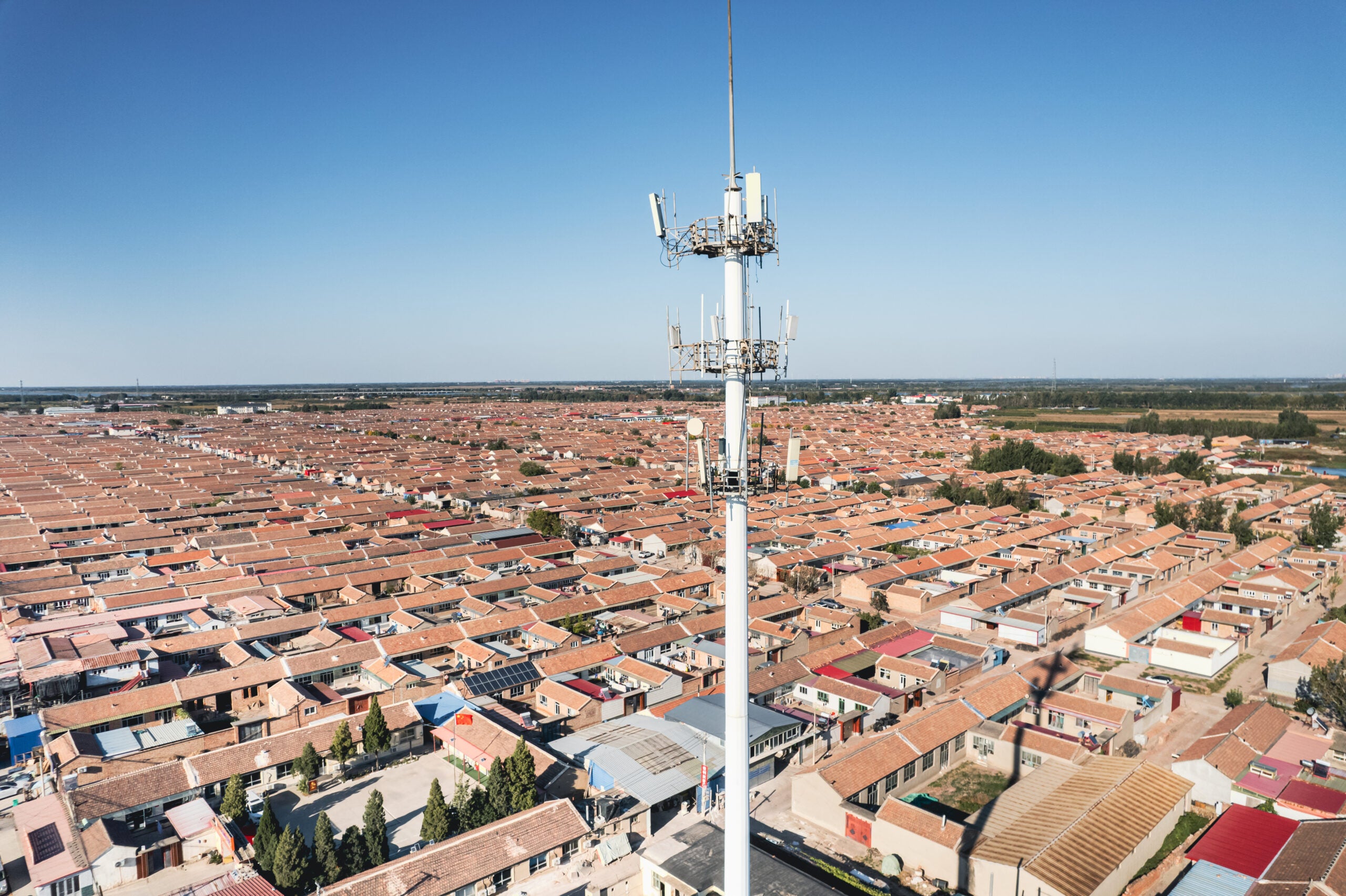What is 5G home internet
5G home internet is a type of internet technology that relies on cellular networks to deliver your internet connection. 5G stands for the fifth generation of wireless cellular technology, and you’re probably familiar with it if you have a cell phone. While 5G allows you to call, text and more, it can also be used as a fixed wireless internet service, referred to as 5G home internet.
5G terminology can be a bit confusing, especially when discussing 5G mobile networks vs. 5G home internet, but remember that the former connects your phone while the latter provides an internet connection to your home – they just do it by connecting to the same cellular tower near you. This is where 5G internet differs from fiber or cable. Instead of being hardwired directly to your home, 5G home internet is a fixed wireless connection that uses the nearest cellular tower to your home to provide internet service.
5G internet technology
5G internet relies on 5G cellular networks that use radio waves to send and receive data. Your gateway receives the nearest 5G signal and converts it to Wi-Fi. This is why the quality of your 5G internet connection depends on your proximity to a cell site or tower. The greater the distance between you and that tower, the less effective your internet connection will be.
Read more about how 5G home internet works.
How fast is 5G internet?
Wondering how fast 5G internet is? Compare 5G upload and download speeds from 5G internet providers like AT&T, T-Mobile and Verizon.
5G internet download speeds

5G internet upload speeds

5G internet speeds vs. competing internet tech
How fast is 5G internet? Compare 5G internet speeds below to other internet technology types such as cable, fiber and satellite internet. Fiber is the fastest and most reliable type of internet available due to its symmetrical upload and download speeds and multi-gig speed capacity, but cable is a close second. Satellite internet delivers the slowest speeds of the tech types, but is often the only choice for those living in rural areas. 5G internet, however, may be a solution that can help close the digital divide in underserved areas.
5G home internet providers and pricing
5G home internet won’t give you the speeds that a high-speed fiber or even cable plan might, but 5G providers offer affordable, no-contract internet with no data caps or price hikes either. If you don’t need a multi-gig internet plan to support extremely bandwidth-heavy activities, 5G home internet can be a great choice. Compare top 5G internet providers, prices and speeds below.
| Provider | Starting price* | Speed | Data caps |
|---|---|---|---|
| Verizon 5G Home | $35.00/mo.** | Up to 300 Mbps | Unlimited |
| Verizon 5G Home Plus | $45.00/mo.** | Up to 1,000 Mbps | Unlimited |
| Starry 300 | $50.00/mo.*** | Up to 300 Mbps | Unlimited |
| Starry 500 | $60.00/mo.*** | Up to 500 Mbps | Unlimited |
| Starry Gigabit | $75.00/mo.*** | Up to 1,000 Mbps | Unlimited |
| T-Mobile | $40.00/mo. | Up to 245 Mbps | Unlimited |
| AT&T Internet Air | $35.00/mo. | Up to 140 Mbps | Unlimited |
*Pricing per month plus taxes for length of contract. Additional fees and terms may apply. Pricing varies by location and availability. All prices subject to change at any time. May or may not be available based on service address. As of 04/10/24.
**For existing customers with a Verizon mobile plan of $30/mo. or greater.
Pros and cons of 5G internet
-
Price – 5G home internet is affordable, and since most people spend over $70/mo. on internet, 5G’s low price tag is a definite plus.
-
No hidden fees – 5G home internet doesn’t have any hidden fees included on your monthly bill, unlike many cable, fiber or satellite providers. 5G also has no contracts or data caps.
-
Promotional and bundling perks – 5G internet providers like T-Mobile and Verizon often offer its plans at discounted rates when bundled with a mobile plan. You can also usually count on some promotional perks like free subscriptions or devices when you purchase a 5G plan.
-
Reliability – The quality of your 5G home internet connection relies on your proximity to a cell tower and works over a wireless connection rather than hardwired cables, so your connection could be sometimes unreliable or inconsistent.
-
Speeds – 5G home internet isn’t going to give you the same speeds or quality internet connection as fiber internet.
-
Plan variety – 5G home internet plans are straightforward – you won’t get much choice when choosing 5G plans, as T-Mobile only has one and Verizon two.
5G home internet expansion and availability
Fixed wireless internet technology is among the fastest-growing internet technologies right now, evident through the subscriber growth we’ve seen from providers like T-Mobile and Verizon in the past couple of years. According to Leichtman Research Group, fixed wireless internet service accounted for 104% of the total net broadband subscriber additions in 2023, compared to 90% in 2022 and only 20% in 2021.
T-Mobile and Verizon had a combined growth of over 3.5 million subscribers in 2023 alone and currently lead the charge when it comes to 5G home internet growth and expansion. This reflects a growing tendency of internet customers to switch to 5G internet as an alternative to cable and fiber.
Starry and AT&T also offer 5G internet service, but T-Mobile and Verizon 5G Home Internet dominate the market.
Learn more about 5G home internet expansion
5G home internet availability
T-Mobile 5G Home Internet is the most widely available 5G provider in the country, covering 60% of the U.S. and is still expanding.
Verizon 5G Home Intenet is less widely available but provides faster maximum speeds of up to 1,000 Mbps compared to T-Mobile’s maximum speed of 245 Mbps. Verizon’s 5G plans are also some of the cheapest available starting at $35/mo. when bundled with a Verizon mobile plan.
AT&T’s Internet Air 5G internet service is the newest player in the game but still has very limited availability and slower speed capacity than its competitors with max speeds of 140 Mbps.
Thinking of purchasing a 5G home internet plan? Enter your address or explore 5G home internet plans and pricing.
5G internet FAQs
5G home internet speeds can range anywhere from 20 – 1,000 Mbps, but your speed will depend on your provider and proximity to a cell tower.
Yes, fiber internet is the fastest and most reliable type of internet available, but 5G provides a low-cost and suitable option for those who don’t need extremely high-speed internet.
T-Mobile is the most widely available 5G internet provider, but Verizon offers faster speeds. Starry offers fast speeds as well, but has very limited availability. AT&T providers slower speeds than the providers mentioned above, and has limited availability.

Written by:
Camryn Smith
Cammy is a writer with Allconnect, growing her broadband industry knowledge for over a year on the internet marketplace. Her expertise lies in home internet and broadband service with a focus on providers, plans…
Read more
Edited by:
Robin LaytonEditor, Broadband Content
-
Featured
![5G internet expansion: Where 5G is going in 2024]() 5G internet expansion: Where 5G is going in 2024 Robin Layton — 4 min read
5G internet expansion: Where 5G is going in 2024 Robin Layton — 4 min read -
Featured
![AT&T expands 5G home internet service]() AT&T expands 5G home internet service Robin Layton — 2 min read
AT&T expands 5G home internet service Robin Layton — 2 min read -
Featured
![10 questions you should ask before choosing an internet service]() 10 questions you should ask before choosing an internet service Ari Howard — 7 min read
10 questions you should ask before choosing an internet service Ari Howard — 7 min read
Latest
-
Thursday, July 25, 2024
Worried about losing your signal? This is how to keep your satellite dish cleanDavid Anders — 6 min read
-
Tuesday, July 23, 2024
The best free TV and movie streaming services 2024Camryn Smith — 5 min read
-
Tuesday, July 23, 2024
Everything you need to know about internet speedsRobin Layton — 8 min read






